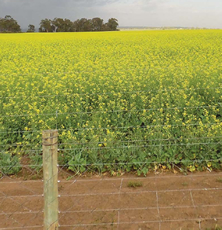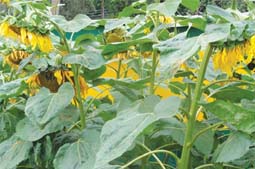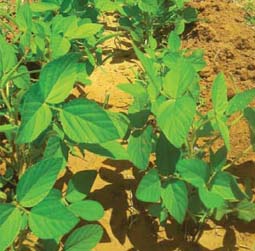Kenya Should Invest in Canola and Sunflower as Alternatives
Catherine Wairimu inches along the aisles of a supermarket some 20 minutes’ drive from the Nairobi central district. Her face flinches after stopping at the cooking oil section and glancing at the prices.
 Prices of crude palm oil have jumped by 33 percent due to the Ukrainian crisis, as sector players initiate efforts to urge the government to contain a further rise in cooking oils.
Prices of crude palm oil have jumped by 33 percent due to the Ukrainian crisis, as sector players initiate efforts to urge the government to contain a further rise in cooking oils.
Manufacturers of cooking oil are now buying palm oil, the main raw material at between $1760 (Sh200,534) per metric tonne and $1980 (Sh225,522) after the escalation of Ukraine-Russia conflicts. Kenya is a large importer of vegetable oils such as sunflower oils, soybean, corn oil and commonly used crude palm oil mainly from Malaysia and Indonesia, which produce more than 90 percent of global supplies.
Cooking oil is also bought in bulk for industrial use in the making of detergents and food stuffs such as bread.
Weak production over the last six months in Malaysia due to labour shortages coupled with flooding has seen Kenya depend on the Indonesia’s palm oil. Soybean oil supplies have been affected by the two year drought in Argentina and Brazil due to La Nina. Ukraine, which accounts for 76 percent of global sunflower oil exports has cut its supplies.

The disruption of alternative oil supplies - sunflower and soybean oil has fuelled a rally on palm oil from Indonesia. As result, Indonesia is enforcing a 20 percent retention of all planned oil exports to be sold in the domestic markets to control their prices, affecting import volumes to Kenya.
This is the time to think outside the box and ask, can Kenya produce enough Canola and Sunflower to cater for the oil markets.
Kenya Needs a Canola Innovation Strategy
There is need to develop a Canola Innovation Strategy, outlining an aligned value chain vision, from farm to customer, for near-term innovations needed to do even more for our economy and our environment. The strategy should articulate a path for innovation and research to achieve the industry’s intended goals.
Canola’s position as one of the world’s most important oilseeds and Canada’s most valuable crop must be built upon continued investment in research and innovation. It needs constant innovation to increase productivity per acre, maintain high demand for its oil and protein, and continue to improve its environmental footprint.
The Canola Innovation Strategy should be developed through in-depth consultations with stakeholders, including canola grower organizations and companies along the value chain, to identify innovation focal points to achieve these objectives. If possible must focus on four key pillars – performance, precision, protection and product, and calls for a predictable and science-based regulatory system.
These discussions will help identify current gaps and opportunities in various aspects of canola innovation, pointing the way to our priorities especially research funding for the Next Policy Framework for agriculture and other funding opportunities. Through the vision of this strategy, growers, government, universities and private researchers can collaborate to increase the likelihood of success. The Innovation Strategy will provide the direction and framework for that collaboration.
The four key pillars of the strategy may be summarized as follows:
1. Performance
Increase productivity and meet current and future customer needs for oil and protein. Remain a top crop for Kenyan producers, sequester more carbon in the soil, reduce greenhouse gas emissions and contribute to biodiversity.
2. Precision
Use current and new field tools and technologies to increase productivity and reduce the environmental footprint of canola.
3. Protection
Protect the crop from pests and other threats to productivity, including climate change factors, while also protecting markets.
4. Product
Ensure Kenya’s canola industry can supply current customers while also being flexible to adapt to changing market demands for oil, meal, protein and fuel.
Kenya needs a full value chain organization representing canola growers, processors, life science companies and exporters. The strategic plan will ensure the canola industry’s continued growth, demand, stability and success.
Why Canola Oils
Pure Canola (rapeseed) oil has a subtle nutty flavour, making it ideal for dressings, roasting, frying and baking. Cold pressed Canola Oil from the fertile farms around Mt Kenya has not been treated with any heat, which means that the health benefits – such as low saturated fat, and high omega 3 – have been preserved… leaving you with nothing but a naturally healthy & local product.
Rapeseed (Canola) oil is the healthiest of all commonly used cooking oils, and comes from the seeds of the canola plant. It is lowest in saturated fat, high in cholesterol-lowering monounsaturated fat and the best source of omega-3 fats of all popular oils. The seed is harvested from pods that are filled after beautiful yellow flowers form on the plant.
Its polyunsaturated fats are essential omega- 3s – which may help prevent heart attacks and strokes – and omega-6s – which are important for the brain and essential for the growth and development of infants. It is a rich source of vitamin E.
Government must unveil a strategy to commercialize oil crop farming
Key players who manufacture edible oils, have resorted to importing Sunflower and Soya beans to sustain processing demand, nevertheless lack of a sustainable market for farmers needs to be addressed before farmers are persuaded to plant the oilseed crops. There is no way you will convince a farmer to plant an oilseed crop which fetches between Sh.25 and Sh.50 a kilo yet they know that the same kilo of beans will fetch twice the amount. There is need to streamline the market in favour of farmers.
However, enhanced Productivity of Sunflower and Soya Beans for Smallholder Farmers’ production of liquid cooking oil from maize was “critically unreliable” as the crop is the country’s staple food for most households.

Ministry of Agriculture formulated the crops (nuts and oil crops) regulations, 2019 aimed at streamlining oversight and better management in the sub sector. The regulations promote value addition of various nuts and oil crop commodities through agro-processing while contributing to the realization of the manufacturing pillar and creating more jobs in the nuts and oil crops sub-sector.
Devolved units may use both the policy and its implementation strategy as a reference point for direct interventions at the local level, especially the mobilizations and providing agricultural advisory services to oil crop farmers, promoting sector development and regulation of the industry at the county level.
The full implementation of the regulations will guarantee oil crop farmers diverse market access and improved prices while ensuring that the growers and their organizations access quality planting materials and market information, enhanced advisory services and support.
“Processors of oil crop products will be assured of consistent and reliable supply of quality raw materials for better business planning and operation and legal recognition of the many businesses now viewed as informal or illegal once the regulations are fully implemented.
Partnership with manufacturers  The BIDCO Africa Chairman, Vimal Shah states that his company has contracted over 25,000 small scale farmers in Nakuru and other parts of the country to grow Sunflower and Soya beans.
The BIDCO Africa Chairman, Vimal Shah states that his company has contracted over 25,000 small scale farmers in Nakuru and other parts of the country to grow Sunflower and Soya beans.
“We link our contracted farmers to Kenya Seed Company and other renowned seed breeders and suppliers for best quality planting material that would yield optimum results for both the farmer and the company,” said Shah. He said the company requires over 10,000 metric tonnes of Sunflower and Soya beans annually, but local farmers only supply an estimated 5,000 metric tonnes.
“Soya beans, sunflower and maize are the main raw materials in the manufacturing of liquid cooking oil. We need to encourage oil crop farmers to adopt market oriented farming through precision planning and good agricultural practices,” said Shah.
“BIDCO Africa pays it’s contracted farmers cash on delivery of required quality sunflower and soya beans. We have no stories of ‘come tomorrow,” he said.
BIDCO Africa and Land O’ Lakes, a United States of America Farmers’ cooperative and manufacturer of animal nutrition products unveiled a Sh. 1.2 billion animal feeds factory in Nakuru.
“We need at least 36,000 metric tonnes per year of both soya and sunflower to run at full capacity. We are underutilizing our machines, which run and stop when there are no more raw materials. There is a ripe and direct market for oil crop farmers, which they must take advantage of immediately,” he said.
Sunflower grows well in areas with sparse rainfall, and the soil should be slightly acidic with a pH of between 6.0 and 7.5. Two main categories of sunflower-Hybrid Variety and Open Pollinated Variety (OPV) are grown in the country. Several hybrid varieties which include Sunbeam, Mammoth, Autumn Beauty, Teddy Bear and Kenya Fedha, are grown in different parts of the country. They mature in three to four months.
Hybrid varieties have higher oil content and better yields per acre averaging 25 bags, while Open Pollinated Varieties have an advantage that their seed can be recycled.
Sunflower by-products such as sunflower cake have a ready market in the animal feeds manufacturers’ industries. Farmers can make more profits if they incorporate value addition in the enterprise as compared to selling the raw seed. Sunflower, unlike maize does not require heavy rains, it’s planted for two seasons and its proceeds are way higher, adding that unlike other crops that are weatherdependent sunflower survives in dry areas. It is also not expensive to produce high quality and quantity yields if a farmer follows the instructions of the officers.

oil crops are used for rotational purposes and conservation farming. Oil crops have been found to reduce erosion, improve soil water retention and lead to fewer weeds, pests and diseases. Oil crop yields are 25 percent more compared to other crops.
A farmer needs about Sh.24, 000 to produce between 500kgs and 1000kgs of soya per acre-if well managed. At least Sh.12, 000 invested in an acre can yield between 300kg and 1,200kg of sunflower.
Soya beans planting seeds cost between Sh.150 and Sh.200 per kilo while sunflower of the same amount can be bought at Sh.300.